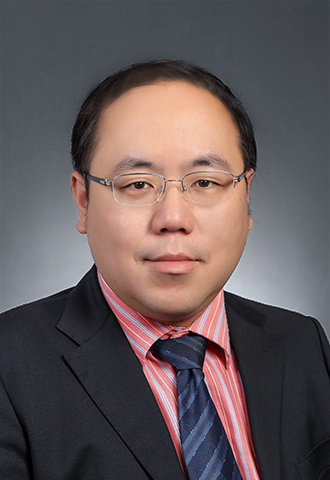-

- Zhu Ming
- Assistant Research Fellow
- Center for west Asian & African Studies
- Institute for Global Governance Studies
- WHAT IF CLINTON WINS ——US President...
- BRICS can lead Global South
- China’s Foreign Policy under Presid...
- China’s Foreign Policy under Presid...
- The Contexts of and Roads towards t...
- Seeking for the International Relat...
- Seeking for the International Relat...
- PRESIDENT BUHARI’S BALANCING ACT BE...
- Beyond the Strategic Deterrence Nar...
- The Struggle for Brazil – And Again...
- The Establishment of the Informal M...
- Identifying and Addressing Major Is...
- China’s Economic Initiatives in th...
- Perspective from China’s Internatio...
- Four Impacts from the China-Nordic ...
- Commentary on The U. S. Arctic Coun...
- Opportunities and Challenges of Joi...
- “Polar Silk Road”and China-Nordic C...
- Perspective from China’s Internatio...
- Commentary on The U. S. Arctic Coun...
- Coronavirus Battle in China: Proces...
- China’s Fight Against COVID-19 Epid...
- Revitalize China’s Economy:Winning ...
- International Cooperation for the C...
- Working Together with One Heart: P...
- The Tragedy of Missed Opportunities
- The Tragedy of More Missed Opportun...
- Competition without Catastrophe : A...
- China-U.S. Collaboration --Four cas...
- Lies and Truth About Data Security—...

Residents walk along a retail street in Wuhan in central China's Hubei province. File picture: Ng Han Guan/AP
In the glass half-full, half-empty analysis, there is always the possibility that one side will be correct. In the recent so-called discrimination against Africans in Guangzhou, many African voices were quick to make judgements based on the “half-empty” perspective.
In this current nightmarish scenario, it is too easy to attribute simplistic notions to complex problems.
The half-empty, half-full perspective leads to simplistic views of what is positive or negative An example is the recent Guangzhou “racist” incident.
I was concerned about the credibility of the evidence. Although I live and work in Shanghai as a research fellow on Sino-African relations, I have only visited Guangzhou twice.
So without first-hand information or evidence, my analysis of the incident is based mainly on my own reasoning and academic knowledge.
I have watched the relevant videos circulating on Facebook and Twitter that purport to show Chinese racist behaviour towards Africans. Most of them do not show clearly what may be deemed Chinese racist actions.
One video shows that black people were ejected from their hotel. It is not unreasonable to see why it is labelled as racism, because all the “victims” in the video are black. But is it fair to call it racism?
If videos of whites as the victims were provided, would the story be more balanced?
Many Chinese businessmen in Africa usually suffer from “special ” or are even blackmailed by local policemen.
But I have only heard Chinese complain about corruption from policemen or bad behaviour among Chinese themselves. Few of these victimised businessmen complain about racism.
It is understandable that Africa is quite sensitive to any kind of racism. But Chinese have suffered racism long before the outbreak of the coronavirus.
Today, many Chinese or even Asians suffer racism and discriminatory treatment because there is a belief by some in Western countries that the coronavirus spread due to China.
Another incident reflected this perceived racism: Tony Mathias, a 24-year-old exchange student, was supposedly forced out of his flat. Mathias told AFP he had “been sleeping under the bridge for four days with no food to eat
I cannot buy food anywhere, no shops or restaurants will serve me We’re like beggars on the street”.
I do not believe this story is true because Chinese universities always face domestic criticism that they are treating foreign students better than local Chinese students.
Even if in the unlikely event that the university ejected Mathias, could he not have found some foreign or local friends or classmates to help him?
How could he be so unlucky to be the only student to be ejected when Guangzhou City has thousands of African exchange students?
Wuhan city, which suffered the severest consequences of the Covid-19 pandemic, has about 4000 African students who were treated well during the 76-day lockdown. Not even a single case of forced homelessness has been reported in Wuhan, so how could it happen in Guangzhou?
As one ancient Chinese saying has it, “There is no 100% pure gold.” In every society, due to complex cultural and educational orientations, it will be difficult to find a total absence of discrimination.
Racism is a scourge and it is gaining ground in some countries. This does not excuse any racism in China.
A perception is that in China it is widespread but this is far from the truth. South Africa and China have good relations.
It is essential for both sides to protect these ties. We should not rush to make a judgement based on the negative “half-empty” perspective.
Source of documents:PRETORIA NEWS(South Africa), May 8,2020
